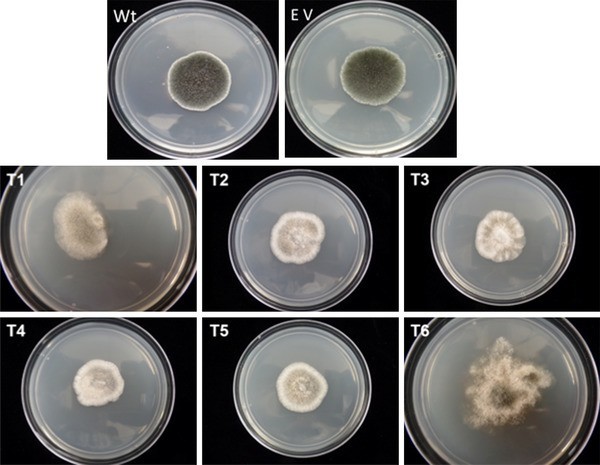Abstract The fungus Slafractonia leguminicola, the causal agent of blackpatch disease of legumes produces two mycotoxins slaframine and swainsonine, causing slobbers’ symptoms and locoism of grazing animals, respectively.The genetics of this important fungus is poorly understood. This work aimed to develop a genetic transformation system and evaluate the efficacy of RNA interference (RNAi) in S.leguminicola. In this study, S. leguminicola was transformed using a PEG-mediated method with a fungal construct that carries a hygromycin resistance cassette. To assess the use of RNAi, a silencing construct pSilentPKS1-AS was constructed which includes inverted repeat transgenes of the polyketide synthase gene (pks1) that is involved in melanin biosynthesis. Transformation of S. leguminicola with the IRT pks1 vector decreased pks1 transcripts levels 82–92% in knockdown mutants when compared with the wild type and was accompanied with a reduction in melanin and swainsonine production. These results demonstrate that RNAi can be a useful tool for studying gene function in S. leguminicola.


